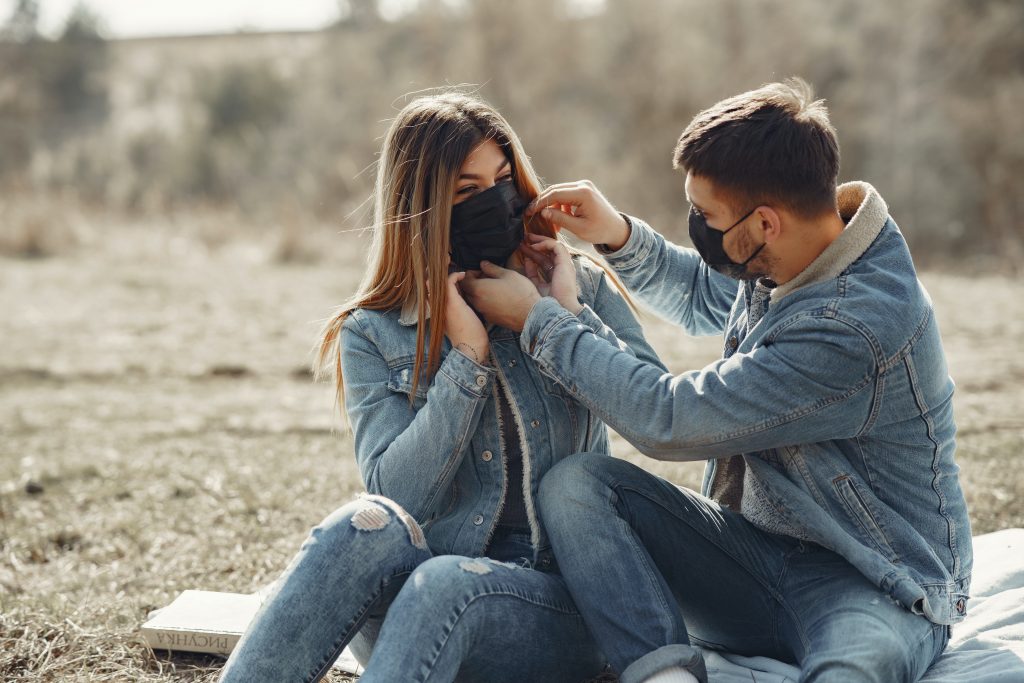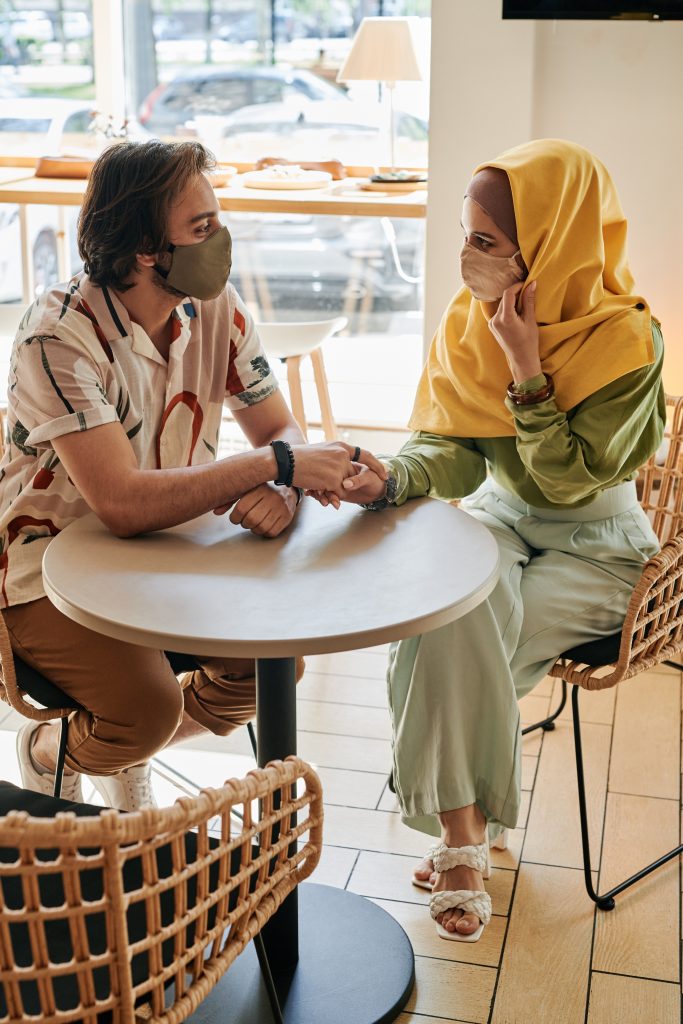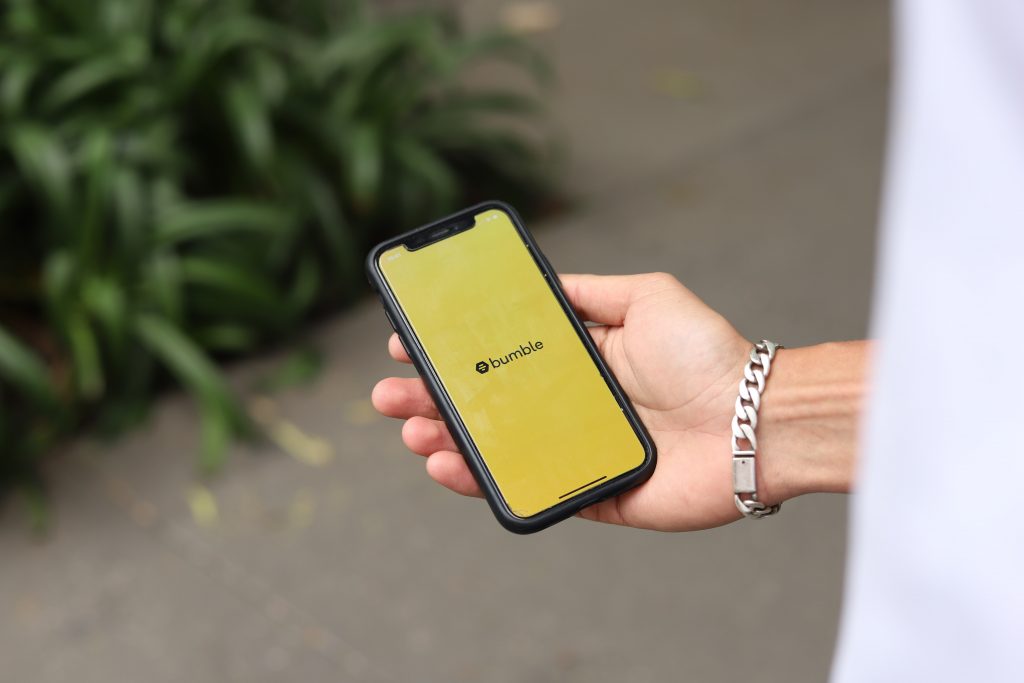Lifestyle
Love in the time of COVID-19: What is dating like during a pandemic?

For the past two years, the pandemic has changed the way we interact with people. Social interaction has been greatly reduced to six-feet-apart conversations, longer screen time for text messages and chats, and hours and hours of Zoom calls.
Dating is not an exemption.
Face masks and face shields have also contributed to the disconnect as our ability to comprehend emotions are vital in communication. Aside from the digital fatigue that most have been experiencing from the constant reliance on technology for work or studies, the isolation and lack of human connection brought by the lockdowns have been making a lot of people feel lonely.
Studies show that there is potential harm in increased social isolation, such as conflicts between intimate relationships due to the stress brought about by the pandemic. Among these stresses might be social, health, or financial issues, but this also includes the lack of physical closeness, connection and communication.
Long-term conflicts?
Although connections and communication seem to be soaring for new matches, some of those who are in a long-term relationship pre-pandemic experienced conflicts in their relationship mostly due to the limited time that they are together.
Some of those who experienced conflicts in their relationship said that the lack of connection and physical intimacy may be one of the reasons for their rocky situation. *J, who is in a relationship for four4 years said that despite them eventually adapting to how they will spend their time together, it was hard to imagine what is on each other’s mind or their plans in the long run since both of them are approaching their early 30s.
“I spent a lot of time reflecting and thinking about what was important about the relationship for me,” J said. “I don’t think we could have foreseen how long this pandemic was going to last.”
Despite the rocky situation that they went through in their relationship, both of them are still together and communicate on how they are seeing the future with them together, despite their strong personalities.
J and his partner learned to have “a ritual” where they would call each other late at night and catch up on how their day went or talk for as long as they saw fit.
“In retrospect, we really became thankful for the pandemic, as it forced us to be alone with ourselves and had us see the relationship for what it was and all that it stood for, based on the respect and care we had built towards each other in the last two years,” he added.
Budding romance in time of COVID-19
Since the world seemed to come to a standstill, most of the people had more time and opportunity to reconnect and catch up with friends and family over the internet. This paved the way for more scheduled hang-outs, online e-numans or drinking with friends via video call, and virtual dates at the comfort of our homes.
Aside from video calls, watching a movie simultaneously via shared screens, going to a virtual escape room, and cooking the same meal are some of the things most people did when hanging out with friends or while on a virtual date.
For Janine Lacson, reconnecting with old friends during the pandemic became an opportunity for her to begin a new relationship with her old schoolmate in college. Their pandemic romance began with a classic modern love story that started with a follow on each other’s Instagram accounts.
Beginning a relationship during a pandemic has its challenges for Janine and her boyfriend as there are limited places that they can go to and not enough time to really get to know each other at first due to the health risks that they may encounter if they meet up.

At first, their dates consist of quick socially distanced meet-ups at a nearby convenience store after work as most of the establishments are already closed due to early curfews. During dates in restaurants, they would be sitting diagonally from each other as sitting face to face or beside each other were not allowed.
“Hindi usual na date di tulad nung before pandemic pero masaya pa din kasi bagong experience (It’s not the usual dating experience unlike before the pandemic but it was still fun because it was a new experience),” Janine said.
“Saka ‘yung ganong moment eh siguradong aalalahanin namin ‘yun hanggang pagtanda eh (And those are the kind of moments that we will remember until we are old),” she followed.
Aside from the unlikely setting of their first few dates, meeting each other has been hard for both of them because of transportation. In the first months of the pandemic, a lot of establishments are closed and most of the workforce are ordered to stay at home. Transportations are limited and is mostly offered to the frontliners. Like most couples during the pandemic, both of them resorted to virtual dates and long video calls instead.
“Looking forward ako sa future dates namin kung saan hindi na need magsuot ng mask. Or magpakita ng vax card. Or magspray ng alcohol everytime may hahawakang bagay. Or mag-dinner date nang magka-videocall lang. (I’m looking forward to our future dates where we don’t have to wear face masks. Or show our vaccine cards. Or spray alcohol everytime we touch things. Or do dinner dates through video calls only),” Janine said. “I really hope everything will go back to normal soon para naman mas masaya and mas panatag kaming magdate sa labas. (I really hope everything will go back to normal soon so we’ll feel safer and happier when we go out on dates).”
Single and Swiping
The era of social distancing and health protocols brought by COVID-19 also saw an increase in online activities as most of the socialization and longing for connection has been transferred to social media applications. And for a lot of young adults who are yearning for romantic pursuits, dating apps have been skyrocketing since the beginning of March 2020, just around the time lockdowns are being carried out in many places.
The year-end report of Tinder in 2020 broke its record for the most activity in a single day, with more than 3 billion swipes on March 29. Other dating apps also soared during the start of the pandemic two years ago, with OkCupid seeing a 700% increase in dates and video calls on Bumble increased by 70%.

Jason Lucero, a sales manager, has been actively using dating apps since the start of the pandemic. Before the pandemic, he enjoyed going on dates once or twice a week, but now that restrictions are placed, the frequency of going on one has dwindled. However, Jason thought that the connections he made are much more intimate this time.
“I think the connections are deeper [during the] pandemic,” he said. “I guess people are now starting to open up more to strangers.”
The convenience of dating apps also makes it easier to identify those who you want to connect with because you can easily look for someone you can vibe with as their interests are shown in the tags aside from basic information. A new feature on Tinder and Bumble also includes a vaccine profile sticker where you can see if the person is already vaccinated or not.
Users of the dating app also said that they highly prefer if the person they will be meeting up with is vaccinated against COVID-19. For *Michael Dy, a Corporate Executive, their beliefs regarding the vaccine must be aligned, aside from their chemistry and compatibility. He believes that those who do not believe in vaccination are causing themselves and others harm.
“Being vaccinated is not just a personal choice but rather more of a moral and social responsibility for us not to endanger others,” he reasoned.
The same goes for Philip Miranda, 26, who has been using the app in the last two years. Philip said that he would rather stop the conversation if the person he matched with is not willing to be educated on how the vaccine works.
“If ever I meet up with someone who has a somewhat questionable stand in regards to the virus, it’s either I can help her understand the dangers of it or just stop the whole meetup,” he said.
Swiping Burnout and Stranger Dangers
Despite the convenience of dating apps in finding potential partners with the same interests, few users also experience a “swiping burnout”. Matching with a person with the same interests as you does not guarantee a blossoming relationship. Most often, there is a higher chance that your match will “ghost” you than all of it working out.
This leads to a repetitive cycle of introducing yourself and having the same conversations again and again which is eventually tiring. 25-year-old Marie Elanga said that despite the convenience of dating apps when meeting new people, the cycle still exists.
“It’s time consuming to keep on swiping right and then meet someone and then introduce yourself, create conversation, and then, eventually it will not work out,” Marie said.
One of the dangers of online dating also includes posers who create fake profiles to catfish their matches. Catfishing refers to a person who creates fake social media profiles, uses fake photos, and fakes their autobiographies to deceive a person in the pursuit of romantic connections. This adds to the risk of sharing personal information to strangers on the internet.
“I think it’s better to meet someone personally because there are information [about them] that you read online and you don’t know if it’s real,” Marie added.
The future of dating
Now that vaccinations against COVID-19 are available everywhere and establishments are slowly getting back on their feet, social interaction and dating are as well.
The past two years have stolen a significant portion in most young adult’s lives, including an important time for most of them to build connections, friendships, and pursue romantic relationships.
Although vaccines are now available and are currently being distributed to different parts of the world, the future of dating, or even the possibility of the daily lives that people used to live pre-pandemic returning remain unclear.
But since cases are starting to dwindle and the coronavirus disease is slowly starting to become manageable in some countries, maybe the said future is not as grim.
*Some names are changed to protect privacy





















